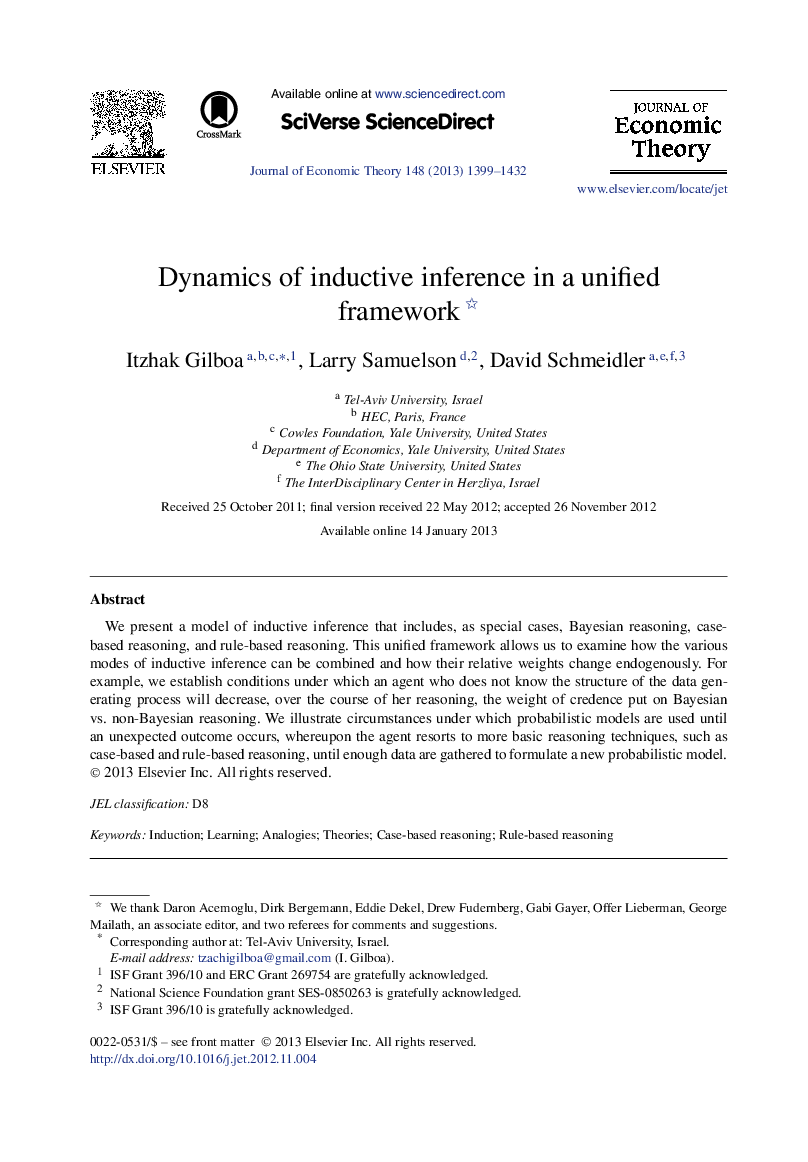| Article ID | Journal | Published Year | Pages | File Type |
|---|---|---|---|---|
| 956748 | Journal of Economic Theory | 2013 | 34 Pages |
We present a model of inductive inference that includes, as special cases, Bayesian reasoning, case-based reasoning, and rule-based reasoning. This unified framework allows us to examine how the various modes of inductive inference can be combined and how their relative weights change endogenously. For example, we establish conditions under which an agent who does not know the structure of the data generating process will decrease, over the course of her reasoning, the weight of credence put on Bayesian vs. non-Bayesian reasoning. We illustrate circumstances under which probabilistic models are used until an unexpected outcome occurs, whereupon the agent resorts to more basic reasoning techniques, such as case-based and rule-based reasoning, until enough data are gathered to formulate a new probabilistic model.
